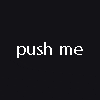Literature is the true depiction of human life in all eras and throughout the centuries. It provides an insight to human life, the behaviors and conducts of humans, as well an access to their inner realms. This quality of literature has forced critics to analyze literature on psychological grounds in order to get the gist in depths than merely the face value.
Analysis means breaking down a subject to understand it in details and discover its essential features. Psychological critical analysis of literature means to break down literature in order to understand it on psychological grounds. This has helped out the critics to present various interpretations of a single phrase apparently looking simple and uncomplicated.
Literary criticism dates back to Aristotle with his publication of Poetics, in which he describes the meters of criticism. Plato also marked the criticism by calling poetry an imitative form of art. Most of the classical and medieval criticism; the birth period of literary criticism, is marked with criticism of religious texts.
With the passage of time, literature saw many developments and criticism as well. Going through medieval to renaissance, and then 19th century, literature was not spared from criticism. In the 20th century, however, criticism took a new shape and form from merely referring to the classical literary works or detailed descriptive analysis of the literary diction.
The early 20th century is marked with ‘Anatomy of Criticism’ by Northrop Frye, in which he criticized the style of critics who adhered to their own ideologies to analyze a literary piece. In this period, the criticism became a more subject based criticism than looking into an author’s personality. In psychoanalytic criticism of literature, literature is taken on psychological grounds. It is read as if it is not latent, a manifest, and a dream work.
psychoanalytic-iterary-criticism1.gifPsychoanalytic literary criticism started with the development of psychoanalysis itself, and induced into literature by Sigmund Freud. This form of criticism essentially requires displacement and deep concentration operations. It is a keen study of symbolism and diction. Freud’s works include several extensive literary essays that explain the psychic exploration of the characters, texts and authors themselves.
Freud’s theory was acclaimed and followed by many like Jacques Lacan and Carl Jung. Though, Freud’s concepts of psycho analysis of literature circles around characters and authors’ psyche reading to explore the mysteries of literary narratives. It can have a wide scope by analyzing the diction and dialect, baffling symbols, actions, scene settings and content resemblance and reference. Psychological critical analysis of literature can also be divided into several branches as was done by Karen Horney’s approaches including womb envy.




0 comments:
Post a Comment